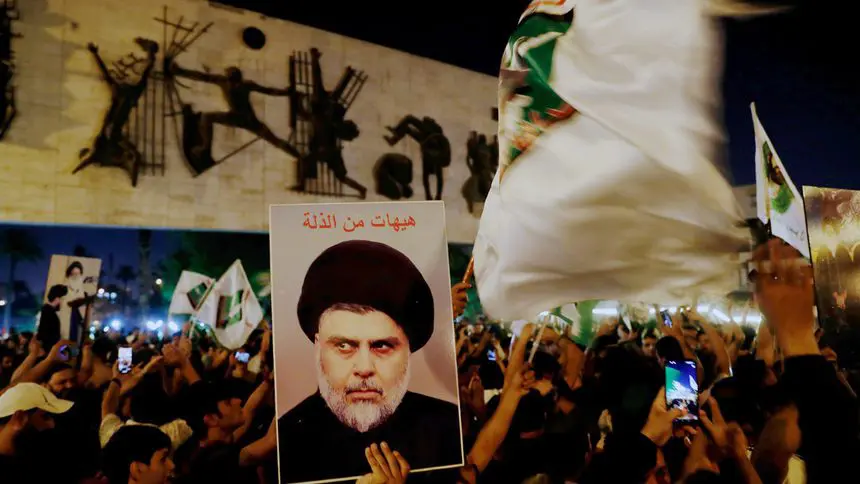Influential Shiite preacher Muqtada al-Sadr has announced that his party’s parliamentary group will be the largest in the Iraqi parliament after preliminary results were released.
Initial figures showed that the al-Sadr bloc won at least 60 seats in the 329-seat parliament, remaining the largest parliamentary group. The preacher, who is not running in person, announced the success in a televised address yesterday and invited his supporters to celebrate.
However, the pro-Iranian Fatah bloc appears to have suffered a heavy blow, winning only 14 seats, up from 47 in the previous parliament.
Turnout in Iraq’s parliamentary elections reached a record low of 41 per cent amid dissatisfaction with the political elite.
The military and some other groups had voted two days earlier.
Iraqis ousted Prime Minister Adel Abdul Mahdi in May 2020 more than half a year after the first demonstrations. At the time, the political elite was not ready for new elections immediately, but only for a compromise prime minister, Mustafa al-Kazimi, a former intelligence chief. He eventually scheduled the elections for October 2021, half a year earlier than the next regular ones would be. The prime minister is not a candidate in the election, but it is possible that the next coalition will nominate him for a second term.
Kazimi has had to balance between the United States – which many Iraqis blame for their problems – Iran, which others say is responsible, and Arab countries. Al-Kazimi launched a project developed by his predecessors along with Egypt and Jordan, known as the “New Sham” and opening up economic opportunities for the country.
The world’s (but not the region’s) attention to Iraq has waned as the United States seeks a way out and shifts its focus from the Middle East and neighboring countries such as Afghanistan to the Indo-Pacific region.







